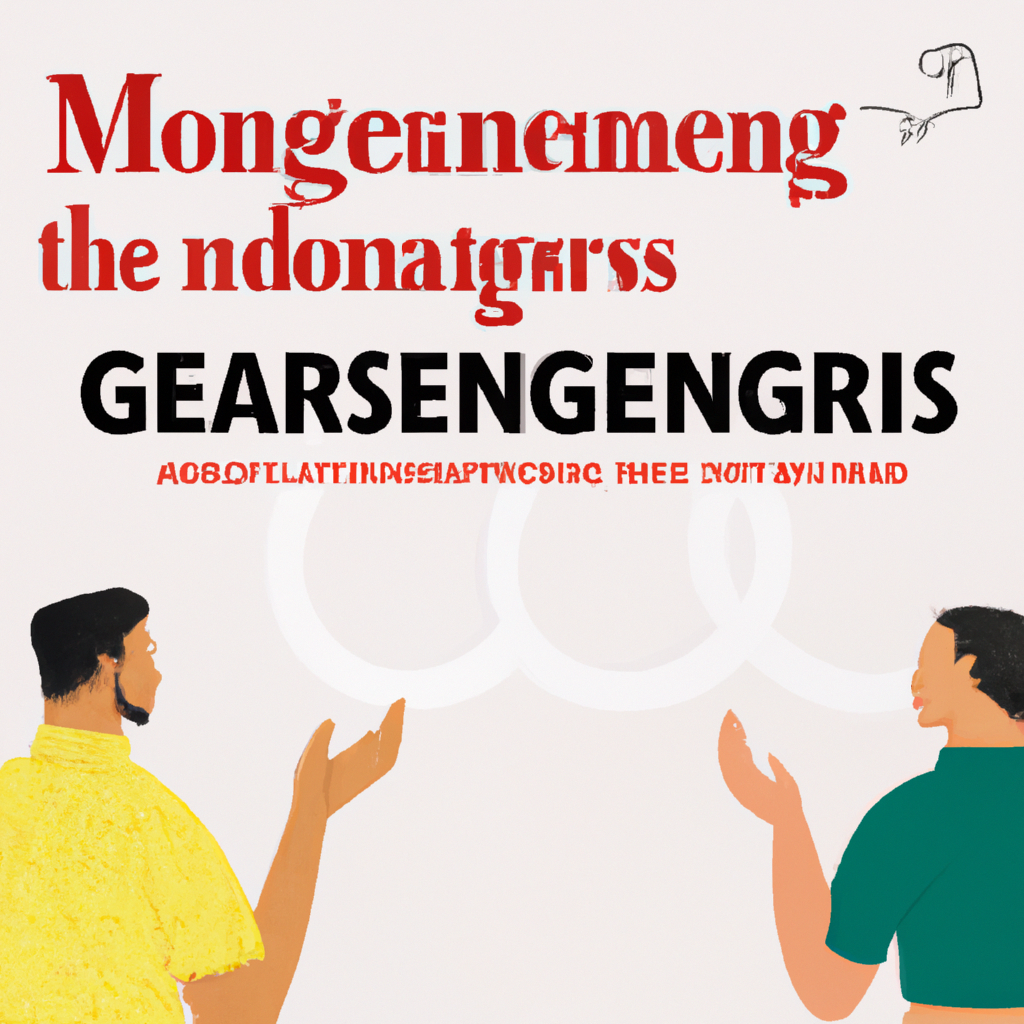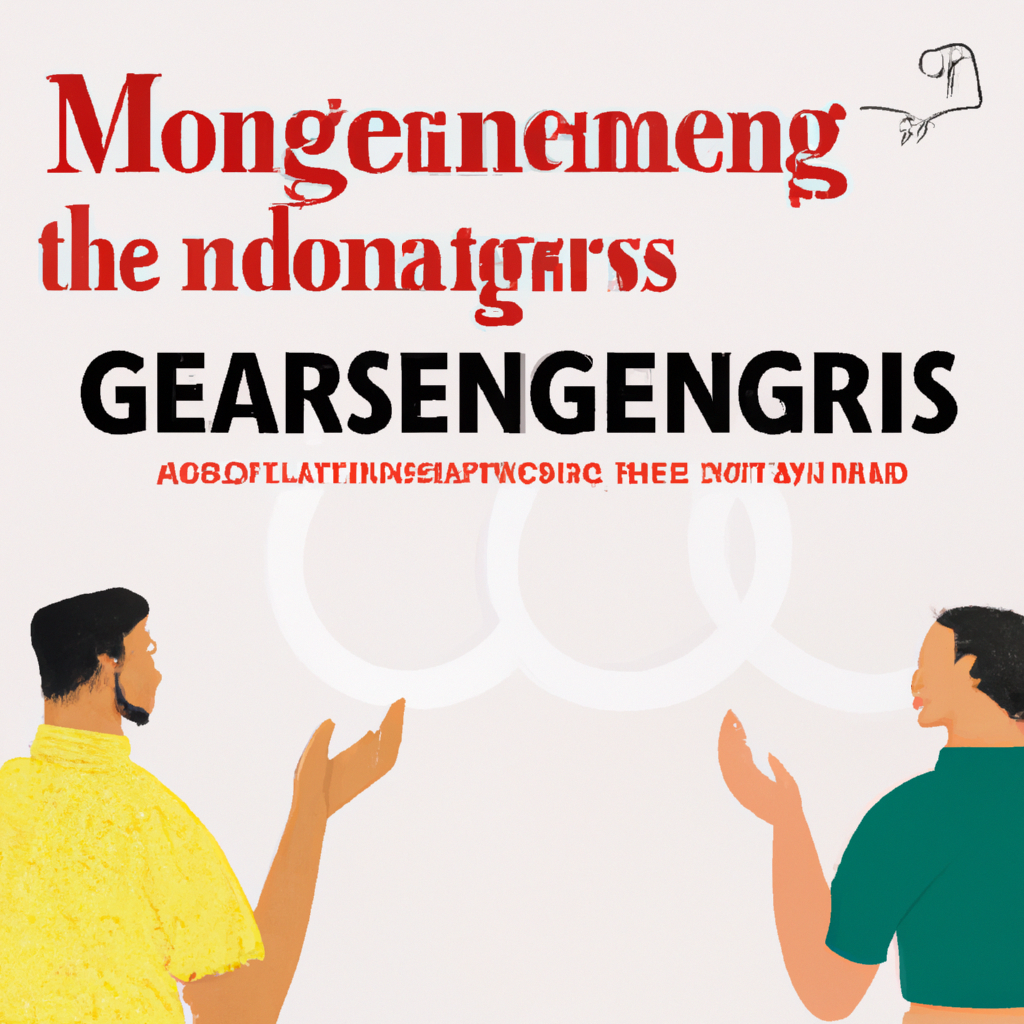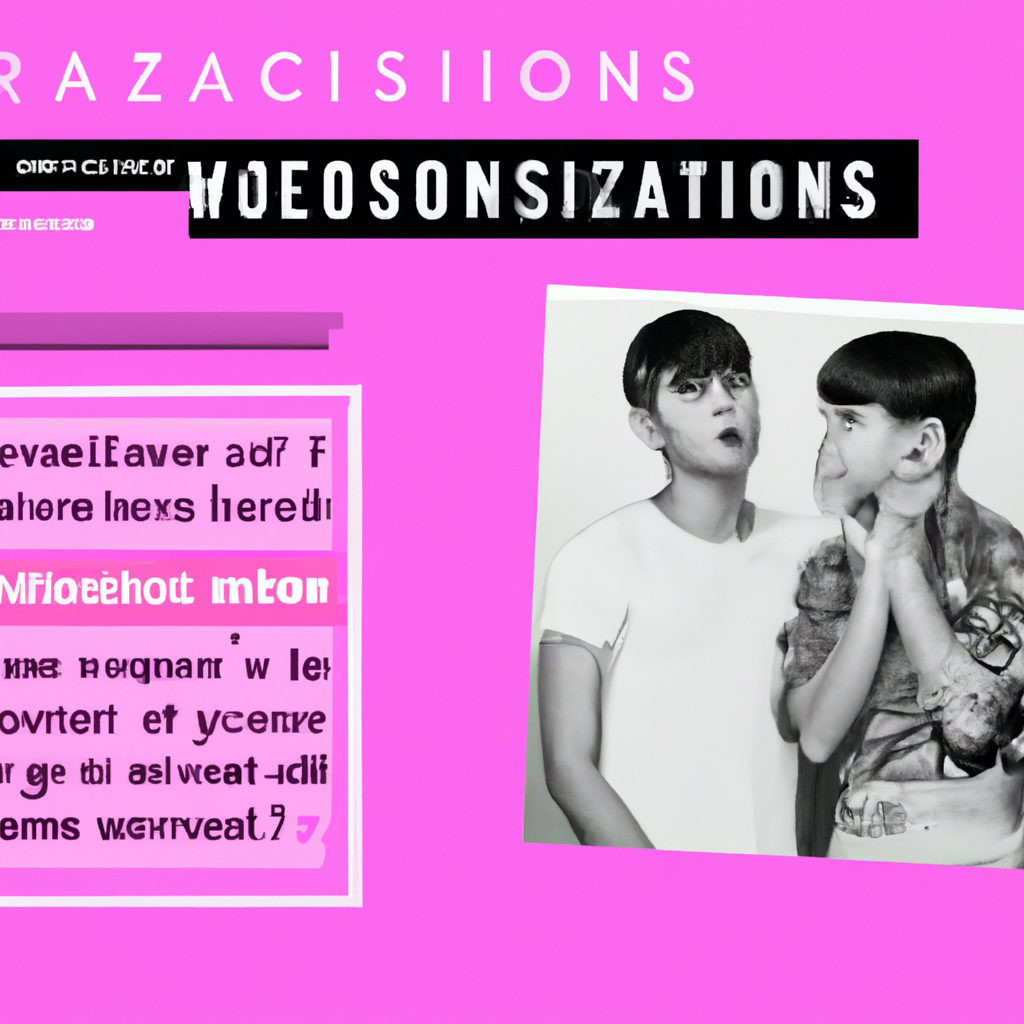
In the world of gay relationships, there are often misconceptions and assumptions about the roles that individuals play. However, it is essential to challenge these preconceived notions and embrace the diversity within our relationships. By questioning these stereotypes and seeking a better understanding, we can create a more inclusive and accepting environment for all. So, let’s explore how we can challenge these misconceptions and foster healthier, more fulfilling connections in our gay relationships.
Examining Stereotypes and Misconceptions
Stereotypes in Gay Relationships
In society, there are various stereotypes associated with gay relationships that can hinder understanding and acceptance. One common stereotype is the belief that gay relationships must conform to traditional gender roles, with one partner assuming a more masculine role and the other a more feminine role. However, it is important to challenge this stereotype and recognize that gay relationships, like any other, are diverse and unique. There is no one-size-fits-all approach to gender roles in gay relationships, as individuals have their own identities and expressions that may not align with societal expectations.
Common Misconceptions
Misconceptions about gay relationships often arise from a lack of knowledge or exposure. One common misconception is that all gay couples have open relationships. While some gay couples do choose to have open relationships, it is not a universal practice. Just like in any other relationship, the decision to engage in monogamy or non-monogamy is a personal one that varies from couple to couple. It is essential to respect the choices and boundaries set by each individual couple without making assumptions based on stereotypes.
Impact of Misconceptions on Relationships
Misconceptions can have a detrimental impact on gay relationships. When people hold biased or negative views about gay relationships, it can lead to prejudice, discrimination, and social stigma. This can create additional challenges for gay individuals and couples as they navigate their relationships within a society that may not fully understand or accept them. To foster healthy and supportive relationships, it is crucial to address these misconceptions through education, open dialogue, and promoting inclusivity.
Challenging Gender Roles
Breaking Traditional Gender Norms
In gay relationships, breaking traditional gender norms allows individuals to express themselves authentically. By challenging societal expectations, gay couples can create a relationship dynamic that aligns with their true identities. For example, both partners might defy traditional gender stereotypes in terms of appearance, occupation, or household responsibilities. This freedom of expression promotes individuality and reinforces the idea that love and commitment should not be defined by rigid gender roles.
Embracing Individuality
Embracing individuality is a fundamental aspect of any healthy relationship, including gay relationships. It is essential for each partner to feel empowered to be their authentic selves. This may involve encouraging each other to explore personal interests, hobbies, or career paths that align with their passions and aspirations. By nurturing individuality within a relationship, gay couples can foster personal growth and create a solid foundation based on mutual respect and support.
Communication and Negotiation
Communication and negotiation are essential tools for challenging gender roles in gay relationships. Open and honest communication helps partners express their needs, desires, and concerns without judgment or assumptions. It allows for a deeper understanding of each other’s perspectives, leading to more effective negotiation when it comes to dividing household tasks, making major decisions, or balancing personal and professional lives. By prioritizing communication and negotiation, gay couples can build a relationship that is rooted in equality and understanding.

Navigating Power Dynamics
Equality and Partnership
Power dynamics exist in all relationships, including gay relationships. However, it is crucial to navigate these dynamics in a way that promotes equality and partnership. Rather than adhering to traditional notions of power, such as one partner being dominant while the other is submissive, gay relationships can thrive by embracing partnership and collaboration. Decision-making, problem-solving, and sharing responsibilities should be approached as a joint effort where both partners have equal input and agency.
Sharing Responsibility
Sharing responsibility is an important aspect of navigating power dynamics in gay relationships. This means distributing household chores, financial obligations, and emotional support equally among partners. By sharing responsibilities, each partner feels valued and respected, and the relationship becomes a true partnership rather than a hierarchical structure. It is essential to have ongoing conversations about responsibilities to ensure both partners have a voice in determining how tasks are assigned and managed.
Acknowledging Privilege and Intersectionality
In gay relationships, it is essential to acknowledge privilege and intersectionality. Intersectionality recognizes that individuals’ experiences are shaped by various aspects of their identities, such as race, ethnicity, socioeconomic status, and ability. By acknowledging privilege and intersectionality, gay couples can actively work to dismantle systems of oppression, support each other’s experiences, and promote inclusivity within their relationship and the wider community. This awareness fosters understanding and helps create a more equitable and supportive partnership.
Embracing Emotional Vulnerability
Dismantling the ‘Strong and Silent’ Image
Traditional masculinity often promotes the idea of being ‘strong and silent.’ This image can be particularly challenging for gay men, who may face societal pressure to adhere to a certain masculine ideal. In gay relationships, it is essential to dismantle this image and create an environment where emotional vulnerability is celebrated. By encouraging open expression of emotions, feelings, and concerns, partners can build a deep sense of trust and develop a stronger emotional connection.
Cultivating Emotional Intimacy
Cultivating emotional intimacy is crucial in any relationship, including gay relationships. Emotional intimacy involves sharing personal thoughts, feelings, and experiences with a partner and being receptive to their emotions as well. By creating a safe space for emotional expression, gay couples can strengthen their bond and develop a deeper understanding of each other’s needs, desires, and fears. Nurturing emotional intimacy requires active listening, empathy, and validation of each other’s experiences.
Encouraging Open Communication
Open communication is the cornerstone of a healthy and thriving gay relationship. By fostering an environment of open and honest communication, partners can effectively address any concerns, resentments, or misunderstandings that may arise. It is important to establish regular check-ins, where both partners can openly discuss their thoughts and feelings without fear of judgment. By encouraging open communication, gay couples can create a foundation of trust and mutual understanding, leading to a stronger and more fulfilling relationship.

Addressing Sexual Compatibility
Destigmatizing Sexual Preferences
Sexual preferences are diverse and unique to each individual, regardless of sexual orientation. It is essential to destigmatize preferences and promote an inclusive understanding of sexual compatibility in gay relationships. This involves challenging stereotypes associated with sexual roles and practices within the LGBTQ+ community. By creating a safe and non-judgmental space for open discussions about sexual preferences, gay couples can explore and celebrate their shared desires while respecting each other’s boundaries.
Exploring Individual Desires and Boundaries
Exploring individual desires and boundaries is a vital aspect of sexual compatibility in gay relationships. Each partner may have different needs, wants, and comfort levels when it comes to sexual intimacy. Honest and ongoing conversations about desires, fantasies, and boundaries allow for a deeper understanding of each other’s sexual needs. By finding a balance that honors both partners’ desires while respecting boundaries, gay couples can strengthen their sexual connection and promote a mutually fulfilling intimate relationship.
Importance of Consent and Communication
Consent and communication are paramount in any sexual relationship, including gay relationships. It is essential for partners to establish clear boundaries, seek explicit consent, and prioritize ongoing communication about sexual preferences and experiences. Consent should be enthusiastic, informed, and freely given, and partners should have the agency to express their comfort or discomfort at any point. By prioritizing consent and communication, gay couples can create an environment of trust and respect, ensuring a healthy and enjoyable sexual relationship.
Nurturing Trust and Loyalty
Building Trust in a Relationship
Building trust is a foundational aspect of any successful relationship, and it holds particular significance in gay relationships. Trust involves honesty, dependability, and transparency between partners. To build trust, it is crucial to follow through on commitments, communicate openly and honestly, and prioritize emotional safety. Trust grows over time through shared experiences, mutual support, and consistent behavior that demonstrates reliability and integrity. By nurturing trust, gay couples can create a solid foundation for their relationship to thrive.
Overcoming Jealousy and Insecurity
Jealousy and insecurity can arise in any relationship, and it is important to address them openly and honestly in gay relationships. These emotions may be influenced by internalized homophobia, societal pressures, or past negative experiences. Partners must actively communicate about their fears and insecurities, supporting each other through open conversations and reassurance. Building trust and addressing underlying issues can help overcome jealousy and insecurity, leading to a more secure and fulfilling relationship.
Loyalty and Commitment
Loyalty and commitment are fundamental to the success of any relationship, including gay relationships. Being loyal means being faithful, dependable, and supportive of one another. It involves honoring the commitment made to each other and the relationship. By prioritizing loyalty, gay couples create a solid foundation where each partner feels secure and valued. Demonstrating commitment through actions, such as open communication, prioritizing the relationship, and investing time and effort, nurtures a strong and lasting bond.
Coping with Social Stigma
Confronting Homophobia
Confronting homophobia is a reality that many gay couples face. It is important to challenge and address homophobia both within the relationship and in society as a whole. This includes standing up against discriminatory behavior, educating others about LGBTQ+ issues, and advocating for equal rights. Within the relationship, confronting homophobia involves being supportive, empathetic, and understanding of the challenges faced by one’s partner. By confronting homophobia together, gay couples can build resilience and create a safe and inclusive environment for themselves.
Supportive Social Networks
Supportive social networks are crucial for the well-being of gay couples. Having access to friends, family, or communities that are accepting and understanding can provide reassurance, validation, and emotional support. It is important to surround oneself with people who celebrate the relationship and offer a safe space to share experiences and concerns. Building a network of supportive individuals creates a sense of belonging and helps counteract the negative impact of social stigma.
Self-Acceptance and Resilience
Self-acceptance and resilience are powerful tools for coping with social stigma in gay relationships. It is essential for each partner to cultivate self-acceptance and embrace their identity without shame or self-doubt. Building resilience involves developing coping mechanisms, seeking support when needed, and finding strength in one’s own resilience. By prioritizing self-care, self-acceptance, and building resilience, gay couples can navigate the challenges of social stigma and create a fulfilling and resilient relationship.
Balancing Independence and Togetherness
Maintaining Individual Identities
Maintaining individual identities is vital in gay relationships. While being part of a couple is fulfilling, it is important for each partner to have their own interests, friends, and hobbies. By cultivating individual identities, gay couples can avoid co-dependence and support each other’s personal growth and fulfillment. Encouraging each other’s passions and maintaining a sense of self outside the relationship enhances overall well-being and strengthens the bond by bringing unique experiences and perspectives into the partnership.
Cultivating Mutual Interests and Hobbies
Cultivating mutual interests and hobbies is a way to foster togetherness and shared experiences in gay relationships. Finding activities that both partners enjoy and engaging in them together strengthens the bond and creates a sense of teamwork and connection. Mutual interests provide opportunities for shared laughter, exploration, and personal growth. By deliberately nurturing mutual interests and hobbies, gay couples can strike a balance between independence and togetherness, creating a fulfilling and harmonious relationship.
Combining Autonomy with Partnership
Finding a balance between autonomy and partnership is essential in gay relationships. It involves recognizing and respecting each partner’s autonomy, allowing them to make decisions and pursue personal goals independently. At the same time, combining autonomy with partnership means actively seeking ways to collaborate, support each other, and make joint decisions that impact the relationship. By combining autonomy with partnership, gay couples maintain their individual freedoms while enhancing the strength and connection of their relationship.
Defying Relationship Timeline Expectations
Unique Paths and Timelines
Relationship timelines are personal and unique to each couple, including gay couples. It is important to defy societal expectations and prioritize the pace that feels right for both partners. Some couples may choose to move quickly, while others may prefer to take a slower approach. By embracing the uniqueness of their relationship and disregarding external pressures, gay couples can create a timeline that aligns with their needs, desires, and comfort levels.
Rejecting Societal Pressure
Societal pressure to conform to certain relationship timelines can be overwhelming for gay couples. It is crucial to reject these pressures and create a timeline that feels authentic and fulfilling. This may mean challenging societal expectations of when to get married, have children, or reach other relationship milestones. By focusing on the individual journey and prioritizing the couple’s desires, gay couples can build a relationship that is true to their own timeline, free from external pressures.
Respecting Personal Growth and Development
Personal growth and development are ongoing processes in any relationship, including gay relationships. It is important to respect and nurture individual growth within the partnership, allowing each partner to pursue personal goals, education, or career advancements. Respecting personal growth means celebrating and supporting each other’s achievements, even if they may temporarily shift the dynamics of the relationship. By prioritizing personal growth and development, gay couples create a relationship that fosters individual fulfillment and shared success.
Celebrating Diversity in Gay Relationships
Intersectionality and Inclusivity
Intersectionality and inclusivity should be celebrated and embraced within gay relationships. Each partner brings their own unique experiences, identities, and backgrounds to the relationship. Recognizing and acknowledging the intersectionality of identities, such as race, ethnicity, gender, and disability, promotes a deeper understanding and appreciation of one another. By celebrating intersectionality and embracing inclusivity, gay couples can create a relationship that recognizes and values the diverse experiences and perspectives within their partnership.
Appreciating Different Relationship Styles
Just as no two individuals are the same, no two gay relationships are identical. It is important to appreciate and respect different relationship styles that exist within the LGBTQ+ community. Monogamous, open, and polyamorous relationships are all valid and should be free from judgment or assumptions. By appreciating different relationship styles, gay couples can foster a culture of acceptance, understanding, and support within their relationship and the wider community.
Learning from Diverse Experiences
Learning from diverse experiences is a valuable aspect of gay relationships. Each partner brings their own unique background, upbringing, and life experiences. By actively listening and learning from each other, gay couples can broaden their perspectives, challenge preconceived notions, and grow as individuals and as a pair. Learning from diverse experiences fosters empathy, understanding, and personal growth, strengthening the bond and enriching the relationship.
In conclusion, addressing stereotypes and misconceptions, challenging gender roles, navigating power dynamics, embracing emotional vulnerability, addressing sexual compatibility, nurturing trust and loyalty, coping with social stigma, balancing independence and togetherness, defying relationship timeline expectations, and celebrating diversity are all important aspects of fostering healthy and fulfilling gay relationships. By actively challenging societal norms, communicating openly and honestly, and embracing each other’s uniqueness, gay couples can build strong and resilient relationships that thrive on authenticity, love, and mutual respect.




